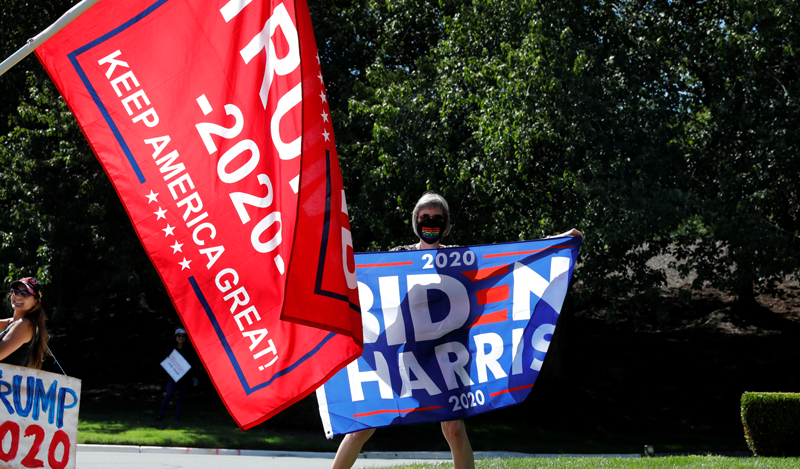Blog September 30, 2020
Democrats and Republicans Believe Their Opponents’ Policies Threaten the National Interest

Lost amid the rhetorical brinksmanship in the fight to replace Supreme Court Justice Ruth Bader Ginsburg, who recently passed after battling pancreatic cancer, is the reason Republicans believe this particular fight is necessary and why Democrats are unlikely to take a measured response. Partisans no longer believe their political opponents offer differing policy solutions to the same problem—they believe the policies themselves are the problem.
Both Democrats and Republicans have become more certain that the opposing party’s vision for the country represents a clear and present danger. Three-quarters (75 percent) of Republicans say the Democratic policies pose a threat, while nearly two-thirds (64 percent) of Democrats say the same about the GOP’s agenda. Only 30 percent of Democrats say Republican policies are misguided or wrong but not dangerous, while 19 percent of Republicans say the same of Democratic policies.
This represents a dramatic shift over just the last few years. In early 2017, about half of Republicans (52 percent) said Democratic policies threatened the country, while a similar number of Democrats (54 percent) said the same about the Republican Party’s policy ideas.
A new report shows that having a diverse political social connections can mitigate negative partisan feelings, but in this case political diversity matters more for Democrats than Republicans. More than seven in 10 (72 percent) Democrats with social networks that include only Biden supporters say Republican policies present a serious threat to the country, while 60 percent of Democrats with politically diverse networks say the same. Seventy-nine percent of Republicans with homogeneous political networks say Democratic policies are a threat to the country, compared to roughly three-quarters (74 percent) of Republicans with diverse political connections.
It is no secret that Democrats and Republicans are not overly fond of each other. Scholars have found that feelings of distrust and enmity felt by partisans about their political opponents has grown in recent years, and perceptions that the opposing party has become more ideologically extreme. The fact that large numbers of Democrats and Republicans do not count members of the opposing party as members of their inner social circle surely exacerbates the problem.
A high-stakes election featuring hyperbolic and apocalyptic rhetoric likely heightens concerns about the political policies being advocated by the other side. But when partisans view the proposals of their political opponents as dangerous, it invites of the use undemocratic tactics and the willingness to break longstanding norms and processes. When Democrats or Republicans believe their opponent’s policies are threatening the national interest, they are more easily delegitimized and any and any type of effort to forestall them are more easily sanctioned.








